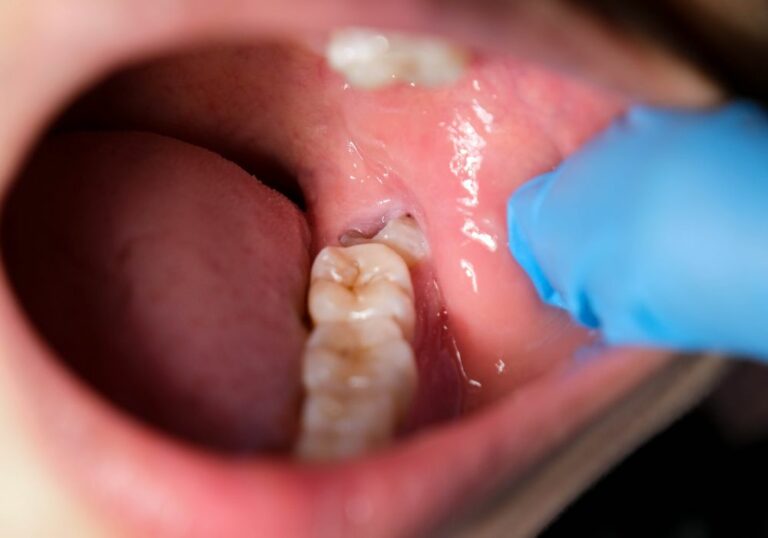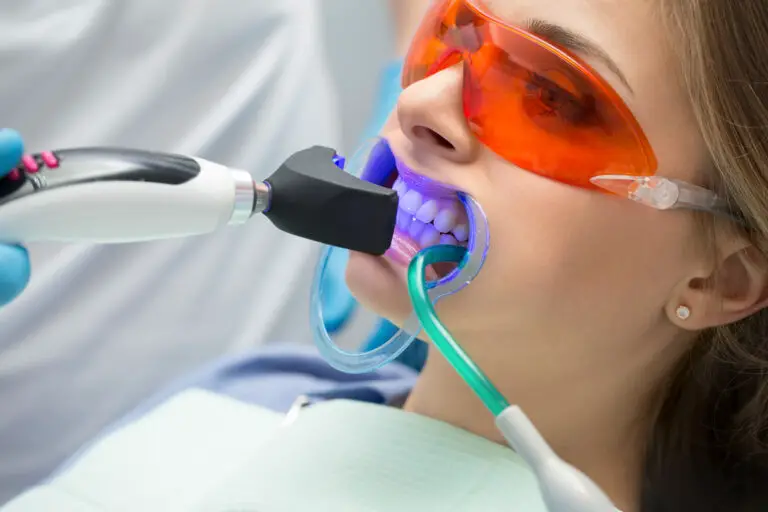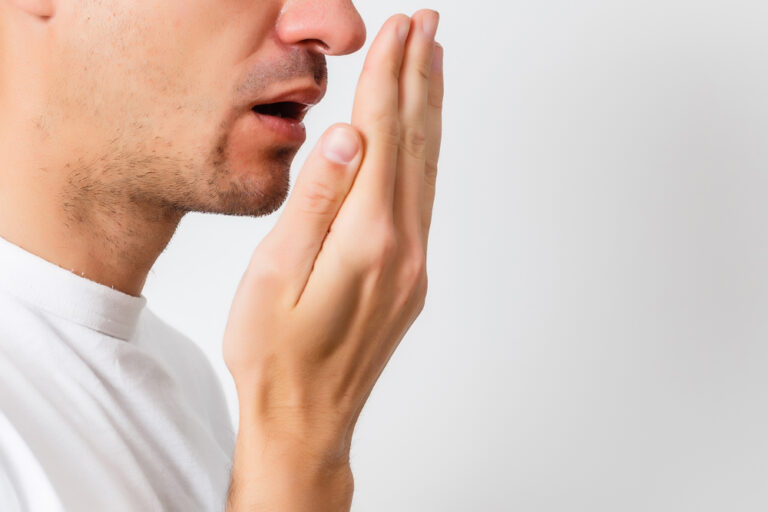If you’ve noticed your 5-year-old grinding their teeth, you may be wondering how you can help them stop. Teeth grinding, also known as bruxism, is a common issue among children and can be caused by a variety of factors. While it may seem concerning, there are steps you can take to help your child stop grinding their teeth and protect their dental health.
One of the first things you can do to help your child with teeth grinding is to identify the cause. Stress, anxiety, and misaligned teeth are common reasons for bruxism in children. If you suspect that your child’s teeth grinding is related to stress, try to identify the source of their anxiety and work with them to find ways to manage it. If you think misaligned teeth may be the issue, consult with your child’s dentist to determine if orthodontic treatment is necessary.
Understanding Teeth Grinding in Children
Teeth grinding, also known as bruxism, is a common condition among children. It is estimated that 3 out of 10 kids grind their teeth before reaching the age of 5. In most cases, teeth grinding is not a cause for concern, and it usually goes away on its own. However, if your child’s teeth grinding is severe or persistent, it may cause dental problems, headaches, and jaw pain.
There are several reasons why children grind their teeth, including:
- Misaligned teeth or jaws
- Stress or anxiety
- Hyperactivity
- Sleep disorders
- Medications
It’s essential to identify the underlying cause of your child’s teeth grinding to determine the appropriate treatment. In some cases, no treatment is necessary, and the condition will resolve on its own. However, if the teeth grinding is causing pain or dental problems, your child’s dentist may recommend a mouthguard or other dental appliances to protect the teeth and jaw.
If stress or anxiety is the underlying cause of your child’s teeth grinding, you can help by creating a calming bedtime routine. This may include reading a book, taking a warm bath, or listening to relaxing music. You can also encourage your child to talk about their feelings and provide a safe and supportive environment for them to express themselves.
In some cases, teeth grinding may be a sign of an underlying medical condition, such as sleep apnea or temporomandibular joint disorder (TMJ). If you suspect that your child’s teeth grinding is related to a medical condition, it’s essential to consult with their healthcare provider for further evaluation and treatment.
Overall, teeth grinding is a common condition among children that usually resolves on its own. However, if your child’s teeth grinding is severe or persistent, it’s essential to seek medical or dental attention to prevent further complications.
Possible Causes of Teeth Grinding
Teeth grinding, or bruxism, is a common condition among children, especially those who are 5 years old. Here are some possible causes of teeth grinding in children:
- Stress and anxiety: Children can experience stress and anxiety due to various reasons, such as starting school, moving to a new home, or the arrival of a new sibling. These emotions can cause them to grind their teeth.
- Misaligned teeth or jaw: If your child’s teeth or jaw are not properly aligned, it can cause them to grind their teeth.
- Medical conditions: Certain medical conditions, such as cerebral palsy, nutritional deficiencies, and endocrine disorders, can cause teeth grinding in children.
- Hyperactivity: Children who are hyperactive or have attention deficit hyperactivity disorder (ADHD) are more likely to grind their teeth.
- Sleep disorders: Teeth grinding can also be a symptom of sleep disorders, such as sleep apnea.
If you suspect that your child is grinding their teeth, it is important to consult a dentist or doctor to determine the underlying cause. Identifying the cause can help you take the necessary steps to address the issue and prevent further damage to your child’s teeth.
Effects of Teeth Grinding on Your Child
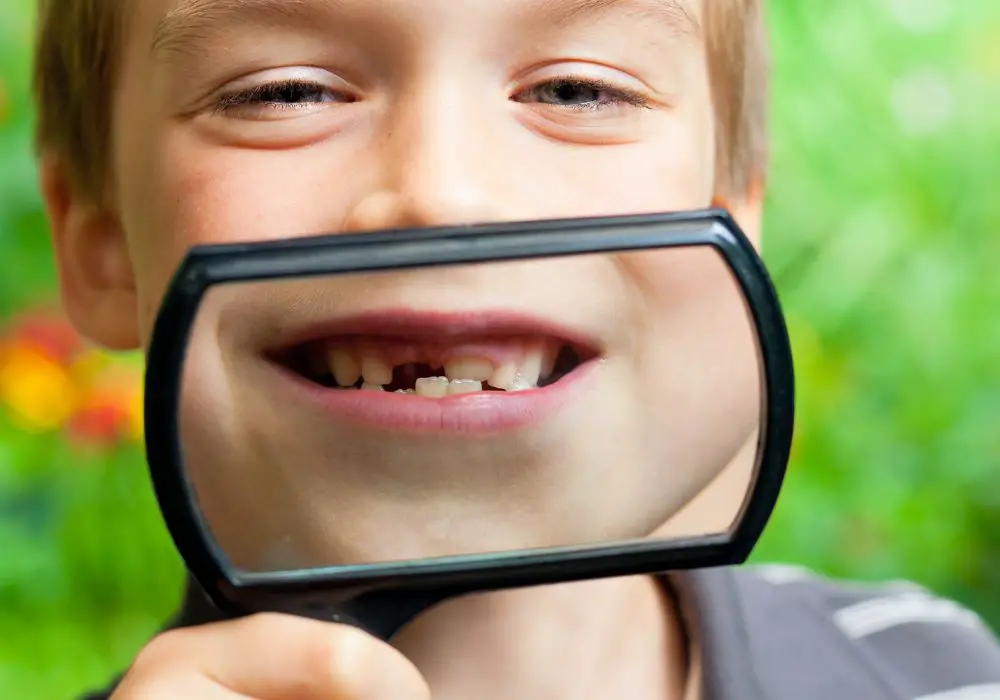
Teeth grinding, also known as bruxism, is a common habit among children, especially those between the ages of 3 and 10. While it may seem harmless, teeth grinding can have negative effects on your child’s health. In this section, we will discuss the physical and psychological effects of teeth grinding on your child.
Physical Effects
Teeth grinding can cause several physical problems for your child, including:
- Headaches: Grinding can cause tension in the muscles of the head and neck, leading to headaches.
- Tooth Damage: Grinding can wear down the enamel on your child’s teeth, making them more susceptible to decay and cavities.
- Jaw Pain: Grinding can cause pain and discomfort in the jaw, making it difficult for your child to eat or speak.
- Earaches: Grinding can cause pain in the ears, as the muscles of the jaw and ear are closely connected.
If left untreated, teeth grinding can cause long-term damage to your child’s teeth and jaw. It is important to address the issue as soon as possible to prevent further damage.
Psychological Effects
Teeth grinding can also have psychological effects on your child, including:
- Anxiety: Grinding can be a sign of anxiety or stress in children. If your child is grinding their teeth, it may be a sign that they are feeling anxious or stressed about something.
- Sleep Disturbances: Grinding can cause disruptions in your child’s sleep, leading to daytime sleepiness and fatigue.
- Behavioral Issues: Children who grind their teeth may be more irritable or have trouble concentrating, which can lead to behavioral issues at home or school.
It is important to address the underlying cause of your child’s teeth grinding to prevent these psychological effects from worsening.
In conclusion, teeth grinding can have negative effects on your child’s physical and psychological health. If you suspect that your child is grinding their teeth, it is important to speak with their dentist or pediatrician to address the issue and prevent further damage.
Recognizing the Signs of Teeth Grinding
Teeth grinding or bruxism is a common condition that affects both children and adults. It is often a subconscious habit that occurs during sleep, but it can also happen during the day. If you suspect that your 5-year-old child is grinding their teeth, it is important to recognize the signs and symptoms early on to prevent any potential damage to their teeth.
Here are some signs that your child may be grinding their teeth:
- Audible grinding or clenching sounds: If you hear your child making grinding or clenching sounds while they sleep, it may be a sign of bruxism.
- Complaints of jaw pain or headaches: Teeth grinding can cause pain in the jaw, face, or ear area, which can lead to headaches.
- Tooth sensitivity or pain: Grinding can wear down the enamel on your child’s teeth, leading to increased sensitivity or pain.
- Worn or damaged teeth: Over time, grinding can cause teeth to become flattened, chipped, or loose.
If you notice any of these signs, it is important to talk to your child’s dentist. They can examine your child’s teeth and determine if there is any damage or if treatment is necessary. In some cases, a mouthguard may be recommended to protect your child’s teeth from further damage.
It is also important to note that stress and anxiety can contribute to teeth grinding in children. If your child is experiencing stress or anxiety, it may be helpful to address the underlying issue and find ways to help them relax, such as through exercise, meditation, or other calming activities.
Overall, recognizing the signs of teeth grinding early on can help prevent any potential damage to your child’s teeth. If you suspect that your child may be grinding their teeth, talk to their dentist and take steps to address the issue.
Consulting a Pediatric Dentist
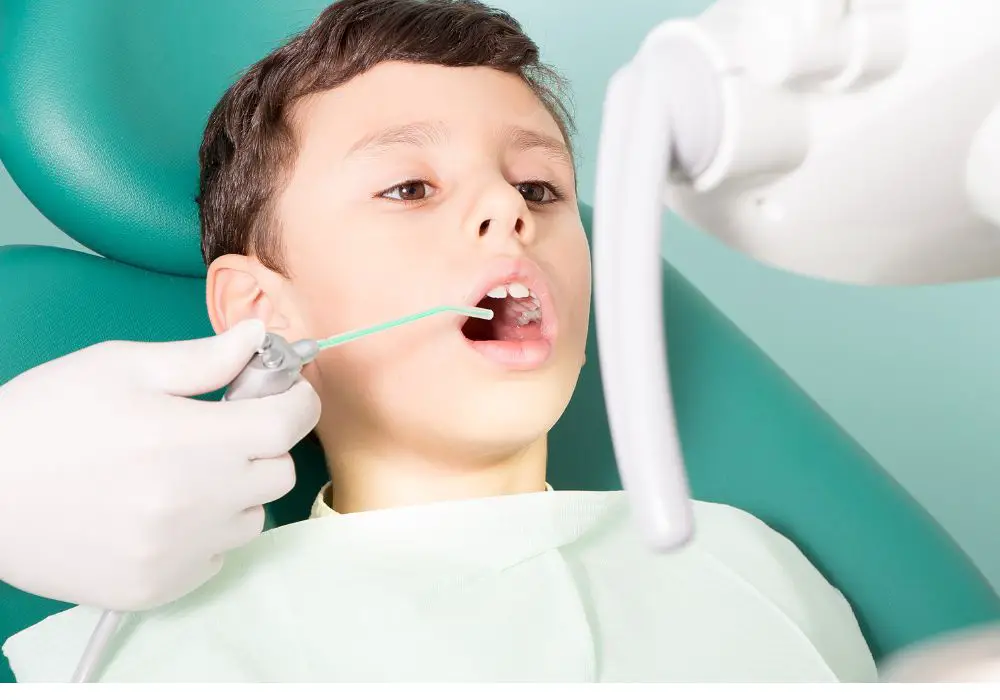
If you suspect your child is grinding their teeth, it’s important to see a pediatric dentist. Here’s what you need to know about consulting a pediatric dentist.
When to Seek Help?
If your child is grinding their teeth, it’s a good idea to seek help from a pediatric dentist. Teeth grinding can cause damage to the teeth, jaw pain, headaches, and other problems. If your child is experiencing any of these symptoms, it’s important to seek help right away.
What to Expect During the Visit?
During your visit to the pediatric dentist, you can expect the dentist to examine your child’s teeth for chipped enamel and unusual wear and tear. The dentist may also spray air and water on your child’s teeth to check for sensitivity. If the teeth are damaged, the dentist may ask a few questions to look what’s causing the grinding, such as misaligned teeth or stress.
The dentist may also suggest a night guard or other treatment to help protect your child’s teeth from further damage. It’s important to follow the dentist’s recommendations to ensure your child’s teeth remain healthy.
In conclusion, if you suspect your child is grinding their teeth, it’s important to seek help from a pediatric dentist. The dentist can examine your child’s teeth and suggest treatment options to help protect their teeth from further damage.
Home Remedies to Help Your Child
If you’re concerned about your child’s teeth grinding, there are several home remedies that you can try to help them relax and reduce the frequency of grinding. Below are some techniques that you can use to help your child:
Relaxation Techniques
- Deep Breathing: Encourage your child to take deep breaths when they feel anxious or stressed. This can help them relax and reduce tension in their jaw muscles.
- Warm Bath: A warm bath before bed can help your child relax and unwind. This can reduce the likelihood of teeth grinding during sleep.
- Yoga: Yoga is a great way to help your child relax and reduce stress. Simple poses like child’s pose or downward dog can be helpful.
Dietary Changes
- Avoid Caffeine: Caffeine can increase anxiety and make teeth grinding worse. Encourage your child to avoid caffeine-containing foods and drinks like chocolate, soda, and tea.
- Magnesium: Magnesium is a mineral that can help reduce tension in the muscles. Foods like spinach, almonds, and avocado are good sources of magnesium.
- Chamomile Tea: Chamomile tea is a natural relaxant that can help your child relax before bed. You can also add honey to the tea for added benefits.
Remember, these home remedies may not work for everyone. If your child’s teeth grinding persists or is causing damage to their teeth, it’s important to consult a dentist for further evaluation and treatment.
Medical Treatments and Interventions
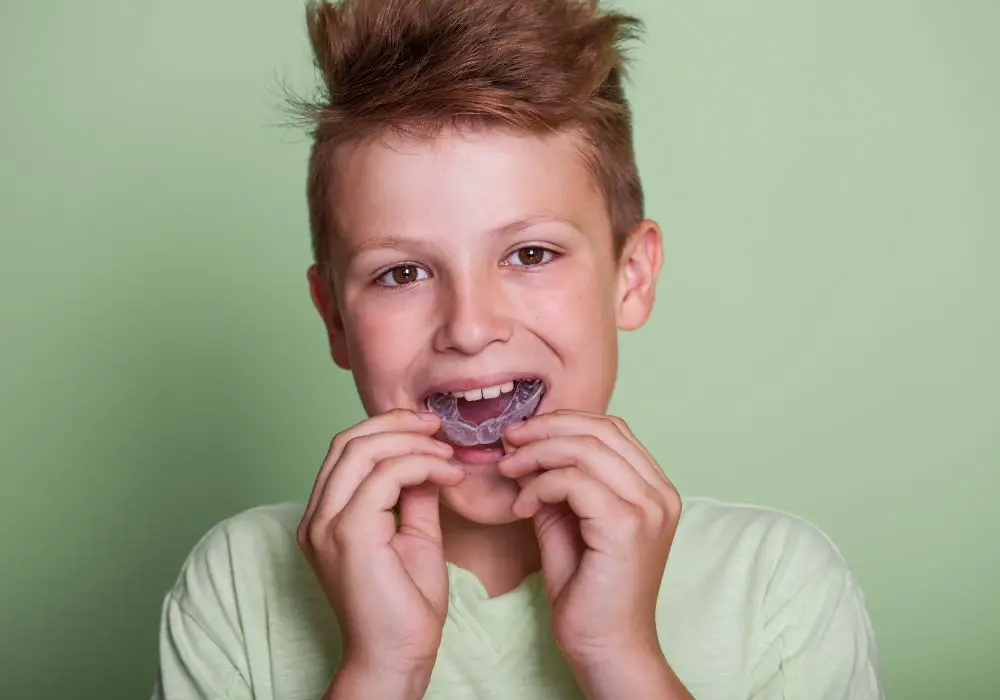
If your child’s teeth grinding is severe and causing damage to their teeth, your dentist may recommend medical treatments and interventions. Here are two common options:
Dental Appliances
Dental appliances, such as mouthguards or splints, can help protect your child’s teeth from the damaging effects of grinding while they sleep. These devices are custom-made to fit your child’s teeth and are worn at night.
Mouthguards and splints work by creating a barrier between your child’s upper and lower teeth, preventing them from grinding against each other. They can also help relax the muscles in your child’s jaw, reducing the frequency and intensity of teeth grinding.
Behavioral Therapies
Behavioral therapies, such as biofeedback or cognitive-behavioral therapy (CBT), can help your child learn to relax their jaw muscles and break the habit of teeth grinding.
Biofeedback uses electronic sensors to monitor your child’s muscle activity and provide feedback on their body’s responses to stress. With practice, your child can learn to control their muscle tension and reduce their teeth grinding.
CBT is a type of talk therapy that helps your child identify and change negative thought patterns and behaviors. Your child’s therapist can work with them to develop coping strategies for managing stress and anxiety, which may be contributing to their teeth grinding.
It’s important to talk to your child’s dentist or healthcare provider before starting any medical treatments or interventions. They can help you determine the best course of action for your child’s individual needs.
Preventing Teeth Grinding in the Future
To prevent your child from grinding their teeth in the future, there are a few things you can do:
- Establish a regular bedtime routine that is calming and relaxing. This can include reading a book, taking a bath, or listening to calming music.
- Limit your child’s exposure to electronic devices before bedtime. The blue light emitted by screens can interfere with sleep and contribute to teeth grinding.
- Encourage your child to practice relaxation techniques, such as deep breathing or visualization, to help them unwind before bed.
- Ensure that your child is getting enough sleep. Children who are overtired are more likely to grind their teeth.
- Talk to your child’s dentist about whether a mouthguard is necessary to protect your child’s teeth from grinding. A custom-fitted mouthguard can be comfortable and effective in preventing damage to teeth.
By taking these steps, you can help your child avoid teeth grinding in the future and ensure that they have a healthy and restful night’s sleep.
Frequently Asked Questions
How do I get my 5 year old to stop grinding his teeth in his sleep?
If your child is grinding their teeth in their sleep, there are a few things you can do to help them stop. First, make sure your child is getting enough sleep. A well-rested child is less likely to grind their teeth. You can also try giving your child a warm bath before bed to help them relax. If your child is still grinding their teeth, talk to their dentist about a night guard.
How to stop a child from grinding their teeth during the day?
If your child is grinding their teeth during the day, there are a few things you can do to help them stop. First, try to identify any triggers that may be causing the grinding, such as stress or anxiety. Once you have identified the trigger, you can work with your child to find ways to manage it. You can also try giving your child a chewy toy or gum to chew on during the day to help relieve tension.
How do you treat grinding teeth in a 5 year old?
If your child is grinding their teeth, there are a few things you can do to help treat the problem. First, make sure your child is getting enough sleep. A well-rested child is less likely to grind their teeth. You can also try giving your child a warm bath before bed to help them relax. If your child is still grinding their teeth, talk to their dentist about a night guard.
Is it normal for a 5 year old to grind their teeth?
It is not uncommon for children to grind their teeth, especially at night. In fact, an estimated 3 out of 10 kids grind their teeth before reaching age 5. Most of the time, teeth grinding occurs because of teething or improper tooth alignment. However, if your child is experiencing pain or discomfort, it is important to talk to their dentist.
Toddler grinding teeth during sleep
If your toddler is grinding their teeth during sleep, there are a few things you can do to help them stop. First, make sure your toddler is getting enough sleep. A well-rested toddler is less likely to grind their teeth. You can also try giving your toddler a warm bath before bed to help them relax. If your toddler is still grinding their teeth, talk to their dentist about a night guard.
Child coughing and grinding teeth at night
If your child is coughing and grinding their teeth at night, it is important to talk to their doctor. Coughing can be a sign of an underlying health condition, such as allergies or asthma. Grinding their teeth may be a result of the coughing, or it may be a separate issue. Either way, it is important to address both the coughing and the teeth grinding with your child’s healthcare provider.



